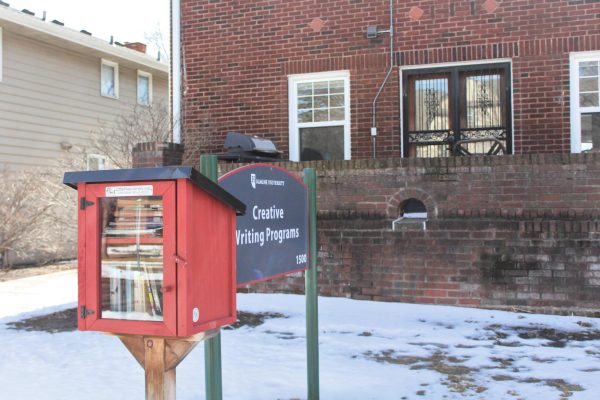Psychology slashes senior semester
Psychology Department cuts senior seminar leaving seniors with one choice.
Before registration this fall the Hamline Psychology department announced that a Senior Seminar Psychology course would be cancelled for spring semester. Instead of being able to take Clinical Psychology to fulfill a 5000 level course for spring semester, students who need a senior seminar instead are left with one option, a course entitled Belief in the Brain with Professor Erik Asp.
Professor Robin Parritz, Head of the Hamline Psychology Department, stated, “I kept the psychology majors as informed as I could, in as timely a manner as I could.”
Senior psychology major Victoria Hannah mentioned that she received surveys and emails in advance regarding the cancellation, preparing students for the change in course offerings. Hannah stated of the cancellation of the Clinical Psychology course, “I felt informed about it.”
Parritz discussed how the class size for Psychology seniors is smaller than it has been in previous years, creating less of a need for two or three 5000 level psychology courses.
“With current guidelines recommending that 5000 level courses enroll approximately 20 students, we thought it prudent to offer one class that we believe will fully enroll,” Parritz said.
Currently, all 18 of the 18 available spots for Belief in the Brain are filled.
“I just feel really, really bad,” senior psychology major Alex Lessard, who manages the cognitive arts lab for the Westley and Lorraine Artz Cognitive Research Center, where students are able to research alongside Professor Asp, said.
Lessard, who was planning to take Belief in the Brain instead of Clinical Psychology during her final semester at Hamline, discussed the ways in which this will affect Hamline psychology major seniors.
“The biggest thing is that Belief in the Brain is much more daunting,” Lessard said.
Belief in the Brain is a neuropsychology-based course, which Lessard said many students find to be a challenging subject.
“I think people just really don’t want to do Belief in the Brain because it seems difficult, but it’s set up completely different than Cognitive Neuroscience,” Hannah said.
Cognitive Neuroscience is another course taught by Professor Asp.
“It’s a lot of specific anatomy you have to remember, and I want to say that Professor Asp tries to make his tests similar to graduate school tests,” Hannah said.
Lessard stated that while the difficulty level for Cognitive Neuroscience is high, which is where much of the anxiety regarding Belief in the Brain is stemming from, Belief in the Brain is a much different course. Belief in the Brain, according to Lessard, will not be as test-based as Cognitive Neuroscience and will have a heavier focus on writing papers.
“The only way [this change] does effect me is that I really wanted to take Belief in the Brain, and now the remaining people who need senior seminars that don’t want
to be in the class may bring down the mood of the class,” Hannah said.
Hannah and Lessard said that this could limit students’ options who wish to pursue a career in clinical psychology in graduate school and beyond. While not having a 5000 level psychology course on one’s transcript would likely have no effect on admission to graduate schools, Lessard said, “It’s definitely something you’d have to explain.”
Both students also discussed how some senior psychology are choosing to seek out 5000 level psychology courses at other ACTC schools instead of taking Belief in the Brain due to their personal career paths. Hannah said that although this is occurring, Hamline does not offer Clinical Psychology annually.
Professor Parritz said of the 2018-2019 school year, “We currently plan on offering three 5000 level courses, meeting the demand of graduating seniors with diverse interests: Belief in the Brain, Childhood and Society and Clinical Psychology.”





